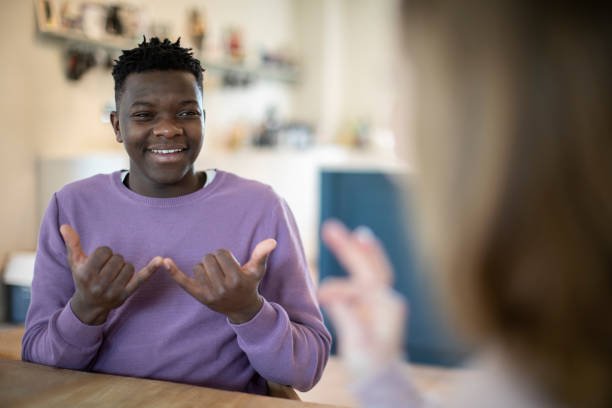Pandemic challenges for the deaf

DR SIDHESHWAR PANDEY
Life for the deaf and hard of hearing has changed significantly in the past half-century.
However, living with deafness or being hard of hearing still comes with its challenges.
New technologies, therapies, advocacy and support provide solutions for many individuals. The World Health Organization (WHO) reports more than five per cent of the world’s population has disabling hearing loss, which requires rehabilitation, support and/or advocacy. It is estimated that more than 700 million people, or one in ten people, will have disabling hearing loss by 2050. The deaf population includes individuals who were born profoundly deaf and others who acquire hearing loss as a result of a medical condition, illness, trauma, exposure to toxic drugs or loud noise exposure.
When unaddressed, hearing loss can affect individuals in various ways, including their communication and speech, cognition, education and employment opportunities, social isolation, and mental health.
People with deafness experience greater challenges in communication, pandemic preparedness, and access to healthcare during the covid19 pandemic.
Wearing a face mask may result in unintended consequences such as social isolation and poor mental well-being. Individuals with hearing loss rely on facial expressions, face-to-face positioning and lip reading to provide contextual clues and augment speech comprehension during communication. Communication and mask-wearing amidst the coronavirus pandemic prove a continued challenge for the deaf or hard of hearing.
Signing is also affected, since sign language is not simply about the signs the hands makes; it also relies on facial movements and expressions. Clear masks may be one solution, although they are not deemed suitable for infection control specially in clinical areas or where N95 masks are required.
Accessing healthcare and information has also become more difficult for deaf and hard-of-hearing individuals during this pandemic.
Additionally, it creates unique challenges for the people with deafness who are hospitalised due to covid19. They experience challenges such as being alone in the hospital without consistent ways to communicate with the doctors or staff, unaccompanied by supporting family members, conversation harder due to physical distancing, not having access to interpreters or difficulty in adjusting hearing devices.
Deafness and hearing loss can mean different things to different people. In Deaf culture, there is a difference between “the small d” deaf and “the capital D” Deaf.
People who consider themselves deaf don’t identify with the Deaf community because they see their hearing loss as a medical condition; whereas people who identify as Deaf belong to a cultural and linguistic community with shared language, social norms, rules of behaviour, and history.
The way a person identifies is neither right nor wrong. It’s simply a matter of preference.
To increase public awareness of the issues and the culture of people who are Deaf, International Week of the Deaf is celebrated globally during the last week of September. The TT Association for the Hearing Impaired, based in Port of Spain, provides various services for the deaf and hard of hearing. It also provides an opportunity to learn about sign language, access to information technology, the types of educational programmes, and support services available to Deaf, Hard of Hearing or Deafblind.
Dr Sidheshwar Pandey is a clinical research audiologist at Dretchi-TTAHI
For more info: Facebook: facebook.com/dretchi.org.tt, 623-0613 ext. 2300 (voice)/787-8045 (text/WhatsApp), e-mail: association@dretchi.org.tt

Comments
"Pandemic challenges for the deaf"